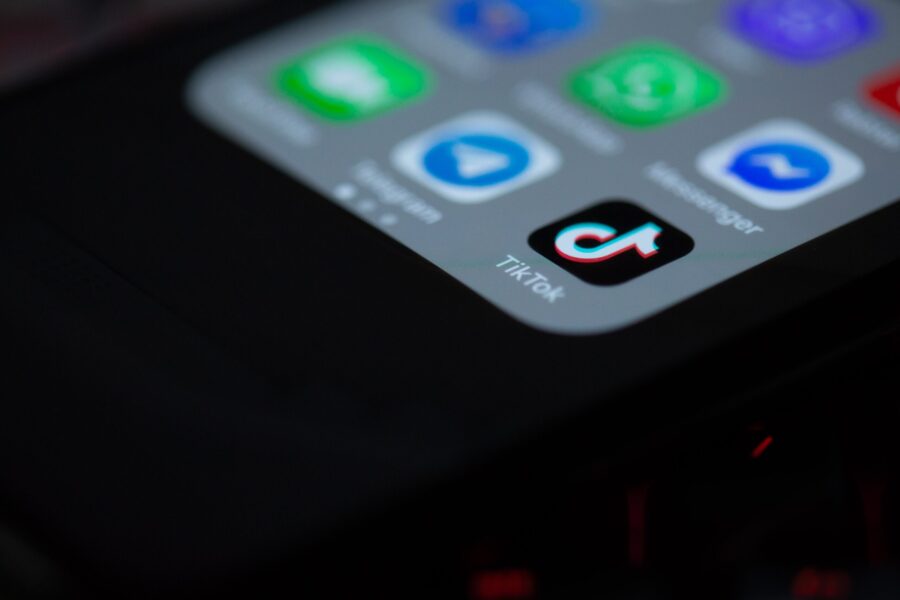How TikTok Can Help – and Harm – Your Mental Health
If you’re struggling with mental health, TikTok may offer a sense of community and solidarity, enabling you to feel “seen” and “not alone.” But according to a University of Minnesota study, the social media app can be a “runaway train” of distressing videos because of how it selects content, the Star Tribune reports.
University of Minnesota computer science researchers conducted a small study – in-depth interviews with sixteen users – which showed that while the app can draw people together, it becomes dangerous when “it force-feeds content that triggers anxiety.”
“Users are along for the algorithmic ride with little ability to affect what the train is doing,” they explained. The only way to avoid unwelcome content is to stop using the app entirely. “The train takes them to places they may not … want to be … yet they cannot stop seeing it without a complete cessation of app use.”
The study, a precursor to a larger investigation of how social media platforms might be more helpful to those with mental health issues, will be featured at a German conference on human-computer interaction.
The appeal of TikTok in the mental health space
Why has TikTok become such an appealing platform for mental health content?
According to the study, “TikTok has become a significant hub for mental health discourse…via the sheer volume of exposure combined with the relatability and accessibility of the content.” Influencers on the platform have impacted the general perception of mental health issues, helping to destigmatize the topic.
The platform is wildly popular, especially with young people – a review of 100 videos with mental health hashtags shows they have been viewed 1.3 billion times.
Study coauthor Stevie Chancellor, assistant professor at the University of Minnesota, acknowledges TikTok’s relevance as a gathering place for mental health information is linked not only to its massive reach, but also to the sense of community it provides. “I don’t want to throw TikTok out with the bathwater, because it does provide this really useful forum for disseminating mental health information and sharing personal experiences,” she noted.
The problem with TikTok
So what’s the problem? Once you view any mental health content on TikTok, the algorithm “is very sticky about content that it believes you like,” Chancellor said, even if the user asks to view something else.
She studies how artificial intelligence can be used to identify high-risk health behaviors among members of online communities. Her goal is to use AI to help social media platforms identify when users need content changes, perhaps by creating a “choose your own adventure” option that gives users a choice of content to view.
Users can lose a sense of time when scrolling through TikTok, to the detriment of sleep, human interaction, and more positive inputs to mental health. The more time teens spend on social media, the more likely they are to be depressed, experts note.
Not only that, but mental health content ranges from the innocuous (heartwarming kitty videos) to the encouraging (personal stories of overcoming struggle) to the outright dangerous (misleading information about ADHD is especially rampant). One research study showed that of the 100 most popular ADHD posts, 52 contained misinformation.
How to maximize TikTok’s benefits while minimizing harm
Clinicians agree that a sense of community and informal support can be valuable, but TikTok has its limits. “When we think about mental health, one of the things people seek out the most is not feeling alone and feeling understood,” said Sarah Jerstad, clinical director of psychological services for Children’s Minnesota. “This is a way for people to put out their own experiences in small bites about mental health struggles and to get support.”
The mistake comes in self-diagnosing a mental health or neurodevelopmental condition. She advises patients to share with a health care provider what resonates with them on TikTok, instead of trying to self-diagnose. There is no substitute for a licensed professional.
“It’s great to bring that to a therapist or a primary care doctor or a caring adult in their life and to be able to say, ‘I saw this. I really relate to this. Sometimes I wonder if I struggle with this,'” she explained.
Read the Star Tribune article here.
Or read the full University of Minnesota study here.
Olson, Jeremy. “TikTok can be a ‘runaway train’of distress for people with mental illness, University of Minnesota study says.” Star Tribune, 18 Apr 2023, https://www.startribune.com/minnesota-researchers-study-tiktok-benefits-harms-on-mental-health/600268140/?refresh=true
Photo by Solen Feyissa on Unsplash



